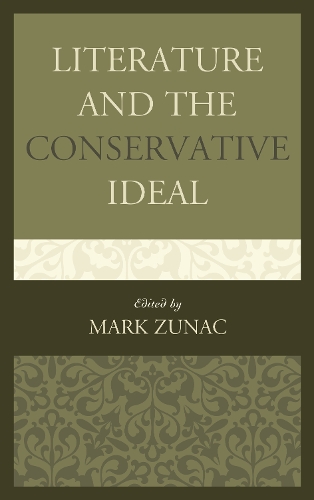
Literature and the Conservative Ideal
(Paperback)
Available Formats
Publishing Details
Literature and the Conservative Ideal
By (Author) Mark Zunac
Contributions by Mark Bauerlein
Contributions by D. Marcel DeCoste
Contributions by Mary Grabar
Contributions by Thomas L. Jeffers
Contributions by Todd H. J. Pettigrew
Contributions by James Seaton
Contributions by Thomas W. Stanford III
Contributions by Barton Swaim
Bloomsbury Publishing PLC
Lexington Books
24th May 2019
United States
Classifications
Professional and Scholarly
Non Fiction
Political ideologies and movements
Anthologies
Social and political philosophy
Political science and theory
809.933581
Physical Properties
Paperback
222
Width 154mm, Height 220mm, Spine 16mm
318g
Description
By examining the ways in which the conservative vision of the world informs certain modes of literary study and has been treated in various works of literature throughout the ages, this book seeks to recover conservatism as a viable, rigorous, intellectually sound method of critical inquiry. While it stops short of promoting political conservatism as an antidote to the dominant progressive strain of todays university, it recognizes literatures transformative power as an artistic reflection of the universal human condition. In this way, it operates against the grain of today's prevailing approaches to literature, particularly the postmodernist wave that has employed literature as a recorder of injustice rather than as evidence of artistic achievement. Therefore, the agenda is restorative, if not revolutionary, returning literature to its place as the center of a true liberal arts curriculum, one that celebrates human freedom, the unimpeded pursuit of truth, and the preservation of civilized life. Perhaps this book's greatest service is that it seeks to define conservatism in highly distinct contexts. Its authors collectively reveal that the conservative ideal lacks formulaic expression, and is thus more richly complex than it is often credited for. Conservatism is not easily defined, and by presenting such divergent expressions of it, the essays here belie the reductive generalizations so common throughout the academy. Ultimately, the conservative ideal may have much more in common with the stated goals of higher learning than has previously been acknowledged. Thus, while this book in no way seeks to directly apply conservatism to curricular matters, it does revive a competing vision of how knowledge is transmitted through art and history, while also affirming the ways in which literature functions as a forum for ideas.
Reviews
Scholarship on conservative literary traditions, conservative approaches to literary analysis, and conservative writers has become increasingly rare in the Humanities. Iwelcome with more than ordinary gratitude the wisdom and moral balance of these otherwise silenced voices. -- Ruth Wisse, Harvard University
Author Bio
Mark Zunac is associate professor in the Department of Languages and Literatures at the University of Wisconsin-Whitewater.
